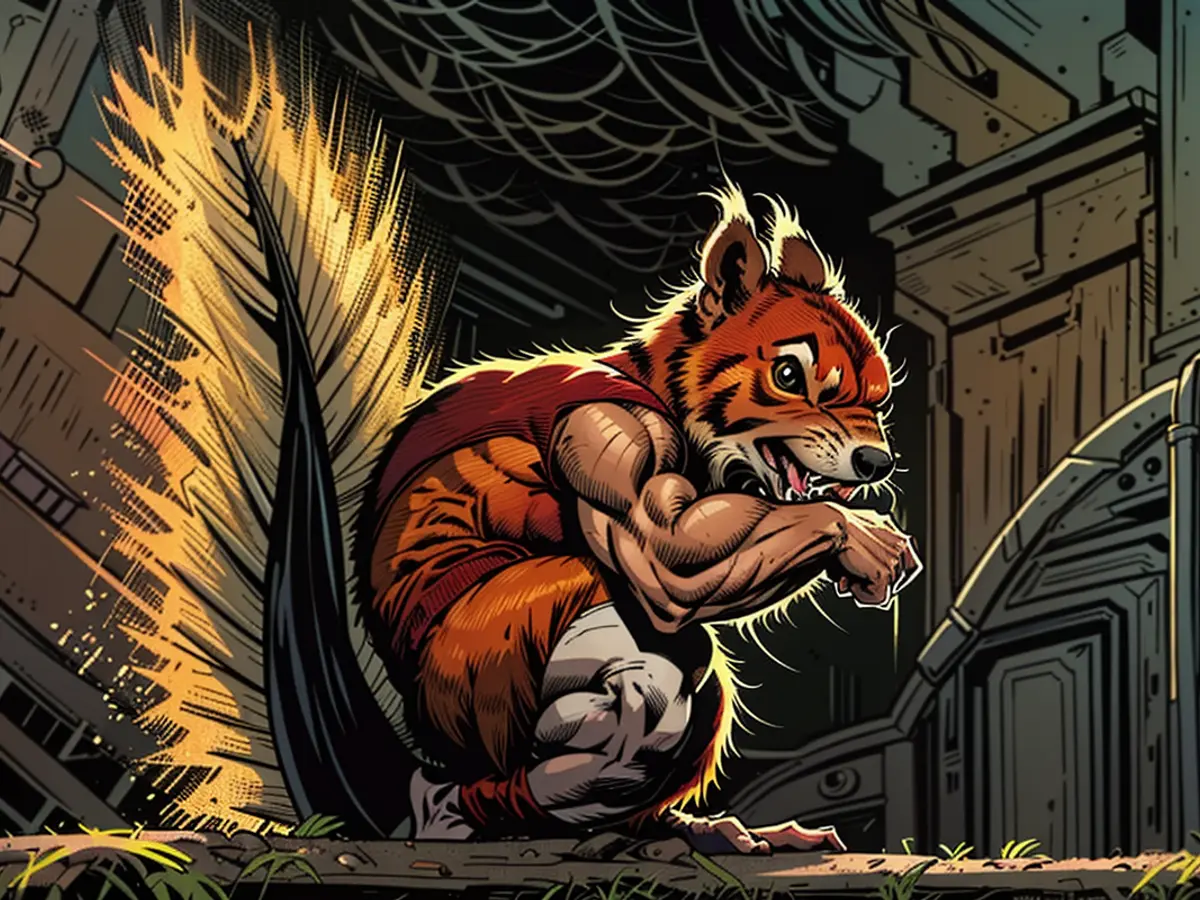- The hard nut: Fighting for red squirrels in Wales
The enemy wears gray. Agile and quite small, it's in the majority - estimated 16 to 1. A man who stands up to the intruder is now trudging through a Welsh forest with a bag of nuts. Craig Shuttleworth has a - admittedly unusual - goal: to catch the gray squirrels on the island of Anglesey. Only then, he thinks, will their red relatives be safe. It's the battle of the climbers - and Shuttleworth is right in the middle.
For many German tourists, the cute gray rodents in Britain are a novelty. After all, they only know red squirrels. In London's parks and the sprawling castle grounds of the country, the playful creatures bring joy to the eyes. But in reality, the grays are an invasive species that pose a threat.
Over decades, gray squirrels (Sciurus carolinensis) originating from America have been introduced in Britain, often on grand estates. It wasn't until around 1930 that the damage became apparent: the red squirrels (Sciurus vulgaris) were being displaced.
One reason for this is that the grays transmit the squirrel pox virus. Although they themselves do not fall ill, the native red squirrels do. Infected animals become weaker and eat less. Not long ago, the virus is estimated to have killed 80% of the reds in a region in Wales.
But even without spreading the virus, the larger grays are a threat to the reds. "Gray squirrels can eat seeds and nuts that are not ripe enough to be digested by the reds, thus getting the food first," explain the authorities. Moreover, gray squirrels also cause significant damage to bird nests and trees.
On the European mainland, there are grays, for example, in northern Italy. However, a feared advance over the Alps has not yet occurred. Also because the animals have more predators there, such as sparrowhawks, buzzards, or martens. "Currently, there are no indications that gray squirrels are already living wild in Germany or are immediately to be expected," writes the Nature and Biodiversity Conservation Union (NABU).
But there are only a few areas left in England and Wales where the reds still hold out. Anglesey is a kind of refuge for them. And Craig Shuttleworth wants to keep it that way.
The scientist from Bangor University in Wales has a tough nut to crack. Anglesey is large and offers plenty of space for the cute rodents. Thanks to online cameras and attentive residents, he tries to track down the gray squirrels. In the forests, he sets traps and distributes nuts to attract the animals.
If a gray squirrel is actually behind bars, it means death. "It is illegal to release the grays back into the wild," explains the researcher and refers to a corresponding law. Alternative methods such as feeding them with hazelnut spread spiked with contraceptives or using genetic technology to limit their reproduction are not yet advanced enough for immediate use.
Even if it were allowed to release the captured animals on the Welsh mainland, it would not do much good. They would quickly find their way back. The two large bridges, over which many tourists and passersby also come - ferries to Ireland depart from Anglesey - make it easy for the gray intruders.
Some animals are likely hitching rides on cars or even trains. That's why Shuttleworth also sets his traps on the mainland side. But the bridges aren't the only way: At least one animal has been spotted swimming across the Menai Strait, the waterway between the mainland and Anglesey.
Currently, the scientist estimates there are 16 grey squirrels on the island. He's not giving up the fight for the treetops. He regularly checks the traps. Neighbors often call him to report sightings of a grey squirrel in their gardens. Anyone could set up a trap, says Shuttleworth, but many naturally hesitate to kill the captured animal. So, he continues the work largely alone. As the savior of the reds.
In light of the threats posed by gray squirrels to the native red squirrels, Craig Shuttleworth's goal of catching the invasive species on Anglesey is crucial for the protection of local red populations. The authorities acknowledge that gray squirrels can eat seeds and nuts before they become ripe enough for red squirrels, thus posing a significant threat.
Given the ease of gray squirrels moving between mainland areas and Anglesey due to bridges and transportation, effective control measures like trapping and monitoring are essential for the preservation of red squirrel habitats, as highlighted by Craig Shuttleworth's efforts.







